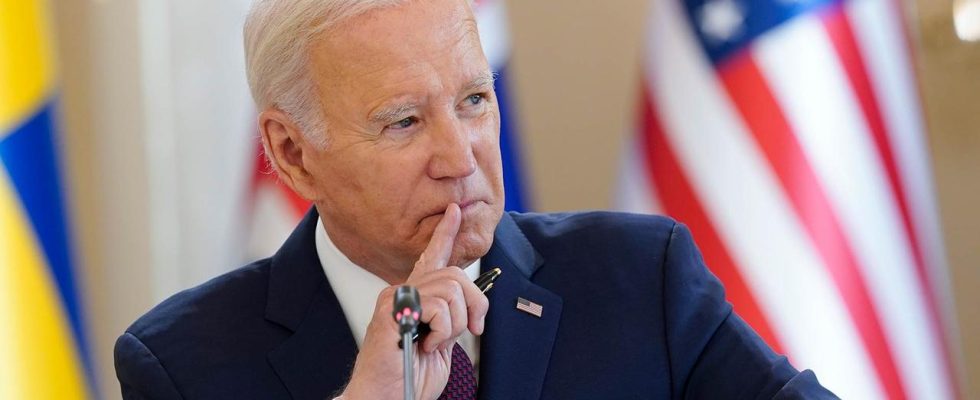The US government bans certain investments in the Chinese tech industry. President Biden invokes the protection of national security. However, China has other ways of getting high-tech.
It could be a new level of escalation in the conflict between the US and China: the US government wants to ban certain investments from the United States in China to protect sensitive technologies. President Joe Biden signed a corresponding decree yesterday. It is aimed at “questionable countries” – although only China is expressly mentioned.
US companies should be prevented from investing in quantum computers, advanced chips and artificial intelligence in China. “We want to prevent China from acquiring and using the most advanced technologies to advance military modernization and undermine US national security,” said a government official in Washington. The decree is a measure to protect national security and not an investment brake.
Above all financial investors involved in joint ventures
United States firms investing in specific areas in China are now required to report such deals to the government in advance. This can then prohibit the investments if they pose a risk to national security from the government’s point of view – for example if they affect the defense or technology sector. The US government’s decree primarily affects private equity and venture capital firms as well as US investors in joint ventures with Chinese corporations, it said.
The decree is the latest in a series of moves by the US to restrict Chinese access to advanced technology. Biden’s predecessor Donald Trump had already introduced punitive tariffs against the People’s Republic, which Biden did not withdraw. Since Joe Biden took office, the United States has also imposed further export restrictions to deny the country access to American technologies.
Billion order from US chip manufacturer
Such restrictions on foreign investments have been discussed in the US for some time. However, there was some controversy over whether additional restrictions could damage the country economically – especially if the Americans decide to take such a step on their own.
However, direct investments are only one way in which China wants to acquire modern high-tech technology. Also on Wednesday, according to a report in the Financial Times, China’s Internet giant Baidu, TikTok owner ByteDance, Tencent and Alibaba simultaneously ordered processors worth a billion dollars each from US chip manufacturer Nvidia, which are used primarily for artificial intelligence become. In order to circumvent the requirements, Chinese companies also acquire licenses from Western companies.
China wants to “resolutely defend interests”
Beijing has already announced reactions to the latest US decree. The situation will be closely monitored and “its own rights and interests will be resolutely defended,” the Chinese state broadcaster CCTV quoted a spokesman for the Ministry of Foreign Affairs in Beijing as saying today. The real aim of the Americans is to deprive China of its development rights and to maintain US global hegemony. In conflict with the United States, the Chinese leadership announced export controls on certain raw materials for chip production in July.
Investment restrictions are also currently being discussed in the European Union. The EU Commission has set up a group of experts to come up with proposals. “We will be actively involved in this process,” said a spokesman for the Federal Ministry of Economics today.
Pressure from Washington
The German government’s new China strategy states in relatively general terms that “appropriate measures aimed at countering risks associated with foreign investments could be important”. They want to discuss this with partner countries. The USA had recently put pressure on Japan and the Netherlands, for example, to stop supplying modern semiconductor technology to China.
At the most recent summit of the G7 countries in May in Hiroshima, Japan, the USA and its partners also discussed the topic, but only made very vague agreements on it. In a joint statement, the G7 countries agreed “to take further measures where necessary” to prevent the outflow of sensitive technologies. However, the G7 countries did not make any concrete commitments.

